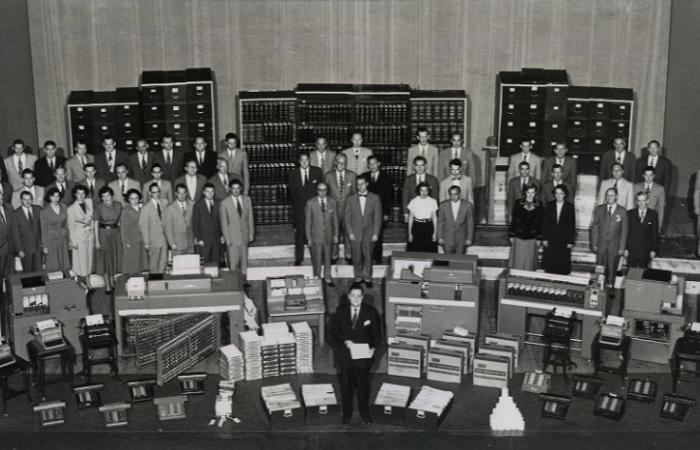
Research Seminar: A. J. Murphy
Facing a military of unprecedented size and scope after World War II, leaders in the U.S. Department of Defense recruited managers from private industry to help them run the Cold War national security state. Defense administrators adopted an array of business-minded reforms in officer professionalization, labor control, and – the focus of this paper – accounting.
While budgets passed by Congress determined personnel and dollar allocations at the highest levels, procedures for the internal distribution of labor and resources were often arbitrary. Some cost-reducing reformers concluded that the best way to tame the military bureaucracy was to incentivize managers to conserve resources by making them participate in simulated markets. This involved requiring that managers at all echelons account for materials, weapons systems, and labor in dollar terms, and setting up “buyer-seller” and competitive relationships between certain military activities. Authorized to pursue this approach in 1949, the three military services established “revolving funds” that required supply and industrial units to operate on the income they got from providing goods and services to other parts of the military, rather than on a dollar figure appropriated by Congress each year.
The 1960s saw an expansion in the use of revolving funds as economists gained prominence in the Defense Department. Drawing on neoclassical economics, a new generation of reformers saw revolving funds not just as a behavioral tool that would promote cost consciousness in local mangers, but as an attractive way to infuse the entire defense establishment with the efficiency of markets. While this dream of top-to-bottom market discipline would remain unfulfilled, proponents of revolving funds legitimated the calls of free-market advocates for privatizing many of the historical functions of the defense establishment.

A.J. Murphy is a Ph.D. candidate in History at Columbia University specializing in twentieth-century U.S. cultural history. Murphy's current research is in the history of management thought, focusing on the rise of the corporate culture idiom in theories of workplace organization. Murphy is the 2018–2019 Jefferson Scholars-Hagley Library Fellow in Business and Politics.
Dr. Glen Asner, Deputy Chief Historian for the Historical Office, Office of the Secretary of Defense, will give the comment.
Attendees are encouraged to read Murphy's paper, “Business Management Expertise in the Cold War U.S. Military,” which may be obtained by contacting Roger Horowitz at rhorowitz@hagley.org.
Free, reply kindly requested, call Roger Horowitz (302) 658-2400, ext. 244, or email rhorowitz@hagley.org.
Header image: DuPont Company accounting department staff and equipment, 1950, Hagley Digital Archives.
